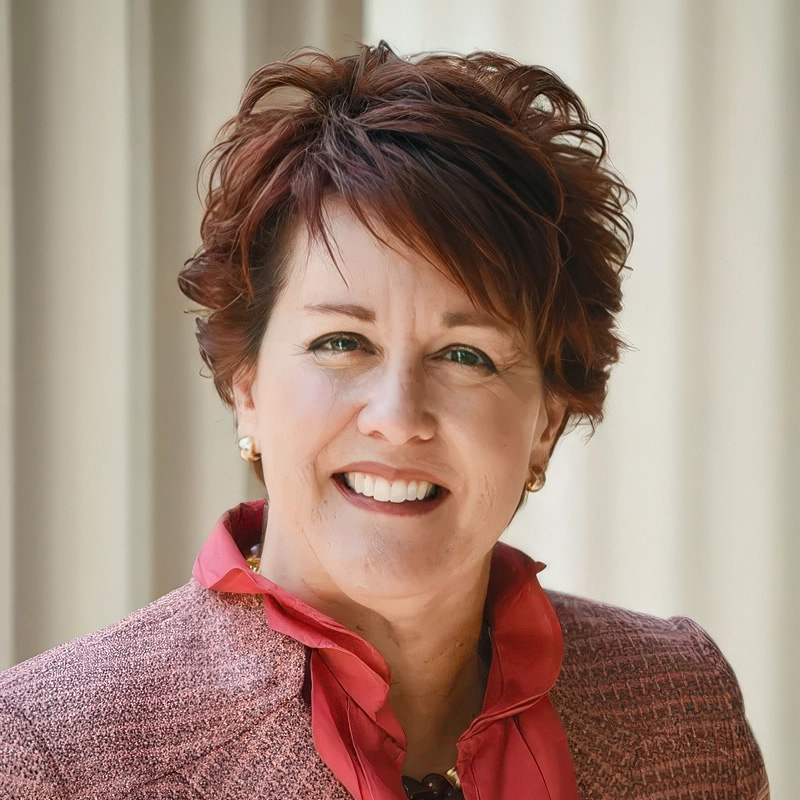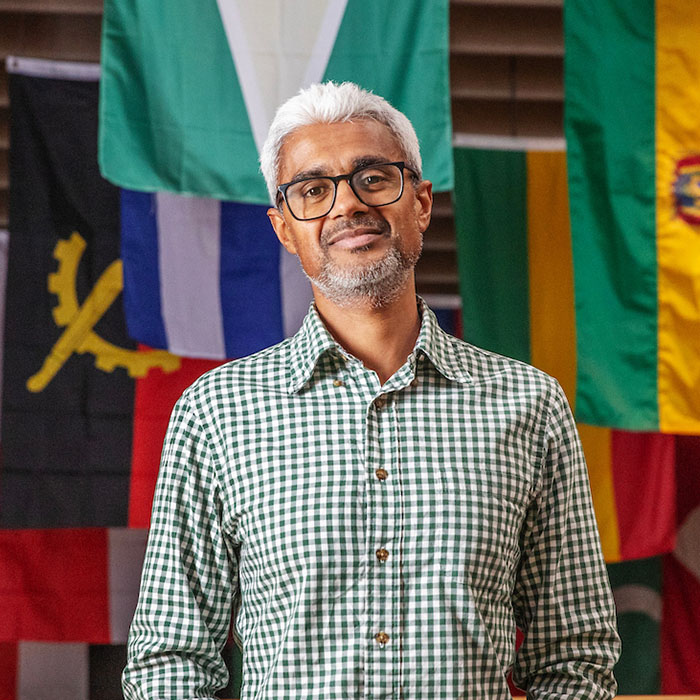Think green thoughts
"Students take away a basic understanding of the multiple dimensions of today's agriculture
and food system."
"Students will learn to understand 'nature' as a socially constructed concept."
"Students will acquire an understanding of soil properties and the consequences of
policy decisions related to soil and water."
These goals are from the syllabi for three courses: "Politics of Food, Agriculture,
and Social Justice," "Literature and the Environment" and "Soil and Watershed Science
for a Crowded Planet." They're among scores of courses this fall that either focus
or touch on environmental, economic or other sustainability issues—and that help place
Skidmore high in several college rankings.
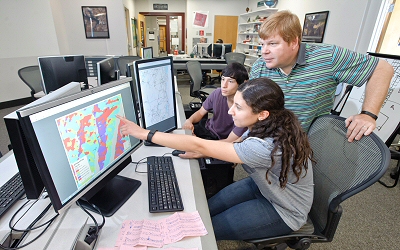
Kurt Smemo, at right, works with students in the lab.
"I love teaching this," says Nurcan Atalan-Helicke of her food-politics course. "It
draws students from bio, anthro and other majors outside environmental studies and
sciences, and it changes every year as new research comes out and new issues make
the news." Lately her class is considering the commodification of food in global industrial
systems. Genetically modified seeds, for example, are controlled by the agribusinesses
that produce them—farmers must sign contracts not to collect seeds from their crops,
so they must buy them new for each planting season. Pricing and labor costs are another
topic: A spike in food prices if workers' wages were increased "is a myth," she says.
"Research shows that the bill for, say, a hamburger, would rise by only a few pennies,
and companies' profit margins would shrink only a tiny amount."
Michael Marx, who teaches environmental lit, also varies his syllabus from semester
to semester. This fall it includes "Nature" by Luther Standing Bear, Prodigal Summer by Barbara Kingsolver, and John Muir's My First Summer in the Sierra. Of course Thoreau's Walden is on the list too, but so is "Tales from a Black Girl on Fire" by poet Camille Dungy.
The idea, Marx says, is for students "to examine different (and competing) understandings
of nature" and the different perspectives and writing styles used by various writers
to present and interrogate ideas of nature.
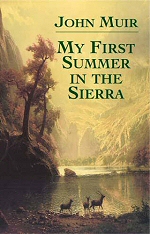
Science is at the core of Kurt Smemo's soil-and-water course, and of the ecosystem
analysis course on forests, which he's also teaching this fall. Soils students are
studying the chemistry and other aspects of the soils in the Saratoga region. "Also
they're learning how many millennia it takes for soil to develop and how quickly it
can be degraded or destroyed," he adds. His forest course is focusing on plant communities
in Skidmore's North Woods, using techniques such as measuring tree-trunk girths and
counting understory vegetation, setting out baskets to collect leaf-fall, counting
individuals and species in 15-meter–diameter plots, and analyzing organic matter in
the forest floor. The studies "include ecosystem disturbance too, like soil compaction
and invasive species," he adds.
In the agriculture course, Atalan-Helicke's students are realizing that "all farmers
on earth today are reliant on markets in some way," she says. "Even subsistence farmers
must buy seeds or fertilizer or equipment, or must sell something to buy other goods.
And all the prices are influenced by global market forces far beyond their farm."
Moreover, these market forces change entire landscapes and ways of life, such as in
New Zealand, where sheep ranches have been making way for huge dairy-cow operations
supplying mozzarella cheese for pizza in China.
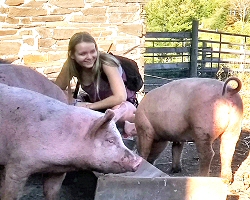
Students from the food-politics course visit the
nearby Longlesson Farm.
Marx says one of his goals is "to awaken my students to ways of understanding their
environment through a literary artistic perspective." Since they're often surprised
by the religiosity of various nature writings, he sometimes starts the course with
Genesis and then early-modern poets such as Andrew Marvell—that way, he says, "by
the time the students encounter John Muir, they are better prepared for the spirituality
of his nature writing."
As for Smemo's science students, they're often surprised to realize how little fertile
soil the Earth contains. He says, "A lot of humans live in areas that aren't very
supportive of agriculture, and to this day poor soils and water insecurity are factors
in many conflicts." The fact is, Atalan-Helicke says, "The world produces more than
enough food for every person on the planet, yet millions go hungry. These are political
and social problems more than agricultural ones. Issues of food security and food
sovereignty are very complex."
In his lit course, Marx requires students each week to write at least one commentary
and respond to at one other in the shared class blog, to practice both "reflecting
on and responding to our readings" and "writing to an informed, real audience." In
addition, he has each student post drafts of formal papers for discussion and critique,
"to sharpen your skills as a critical reader of analytical writing." Smemo's soil
and watershed students also write research proposals, which include study designs,
feasibility and project plans. And his forest students collect the same data but break
into teams to analyze and crunch numbers. He says, "It helps them see how scientific
results can vary, and how gray areas generate new questions and more science."
Sustainable stats
- 52% cut in annual greenhouse-gas emissions
from 2000 levels - 40% of building space geothermally heated/cooled
- 30% of electricity from college hydro and solar
- 125+ sustainability-related courses
- 15+ students in green leadership positions each year
- 60,000 pounds of food waste composted so far
A food-politics assignment often teaches a similar lesson. In choosing a product and
mapping its path from origin to store shelf, many students find that production, shipping
and processing information is very spotty or is hidden as a "trade secret." Says Atalan-Helicke,
"It's eye-opening for students to learn how much we can't learn about our food!"
Other sustainability-related courses range from a first-year Scribner Seminar on notions
of the garden and the forest (taught by a religious studies professor), to business
ethics and anthropology offerings, to biology and other lab studies. A recent count
showed that 21 academic programs (more than half of Skidmore's total) offered a combined
126 such courses. That penetration throughout the curriculum sets Skidmore apart from
many of its peers and helped it earn a silver rating this year through the Association for the Advancement of Sustainability in Higher
Education—proof that Skidmore not only lives green but thinks green.
